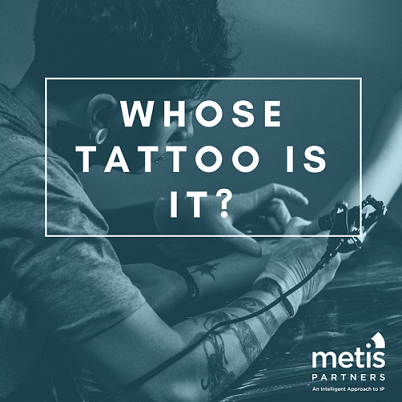How copyright infringement affects tattoos
Tattoo arts have become the centre of complex copyright scenarios and as body art grows in popularity, the number of copyright disputes over tattoos is also rising. Copyright is an intellectual property (IP) right which underpins many different types of IP assets, all united in giving the author of the work certain rights to protect how their materials can be used.
What is copyright infringement?
Copyright infringement occurs when a copyrighted work is reproduced, distributed, performed, publicly displayed, or made into a derivative work without the permission of the copyright owner. It is possible that several people working independently will produce something similar, but it will not be considered infringement unless you can prove that the later work was based on the earlier original work.
Tattoo Copyright Infringement
Case in point was S. Victor Whitmill suing Warner Bros. Entertainment in April 2011, just prior to the release of the much-anticipated movie sequel, The Hangover II. Whitmill alleged that the facial tattoo worn by actor Ed Helms in the movie, is a duplicate of the tattoo Whitmill designed for former heavyweight champion boxer Michael Gerard “Mike” Tyson. When Whitmill created the Tyson Tattoo, Mike signed a release form acknowledging “that all artwork, sketches and drawings related to his tattoo are the property of Paradox-Studio of Demographics”. As a result, Whitmill demanded from Warner Bros., an award of monetary damages sufficient to compensate for his costs, attorney’s fees, and profit from unjust enrichment realized from its infringement. Warner Bros. argued that it had a legal right to reproduce the tattoo under the “fair use” doctrine. However, U.S District Court Judge Perry disagreed and found that it was a blatant copyright infringement. Mr. Whitmill and Warner Bros. subsequently resolved their dispute before reaching trial.

Tattoo copyright infringement has also extended beyond the movies. A few years back, tattoo artist Roger Ladoucer sued restaurant chain Macado’s Inc. after he discovered that a tattoo he designed was used for promotional purposes by the restaurant without his permission. Ladoucer’s lawsuit resulted in an out-of-court settlement from which Macado’s agreed to license the image and provided compensation for profits they generated while they used the image illegally.
Another high-profile case was tattoo artist Jimmy Hayden’s lawsuit against video game company Take-Two Interactive over the inclusion of his tattoo designs in the NBA 2K games. Tattoo artist Jimmy Hayden, who worked with some of the biggest names in basketball such as LeBron James and Kyrie Irving, argued that Take-Two’s inclusion of his tattoos in NBA 2K games without his permission was a copyright infringement. U.S. District Judge Christopher Boyko ruled that Hayden could seek statutory damages.
In an age where social media prevails it’s been suggested that the tattoo-ees with original tattoos are involved in wilful copyright infringement every time they appear in public, get photographed and then share the photo with thousands of followers for commercial gain. Regardless, celebrities including NBA players, are increasingly entering agreements with their tattoo artists to avoid such legal issues.
Protecting IP Assets
So, should us mere mortals be concerned? Since the publicity surrounding this issue has been focused on celebrities and businesses, it’s easy to think it is not relevant to anyone else. However, be warned these same copyright laws apply to us all.
Your IP assets might be greater than you realise: IP rights provide you with the means to protect your brands, patents, trademarks, copyrights, and designs. While tattoo artists have successfully won lawsuits to protect their IP assets, it is still not entirely clear if the reproduction of a tattoo is or is not considered “fair use”. But the “fair use” doctrine is an exception to the exclusive rights granted by copyright law, which allows for the limited use of copyrighted artwork, without granting permission from the original owner.
I guess you could say the tattoo ink is not dry on this one.
Written by Mohammad Tariqul Islam, Business Analyst
https://www.marklitwak.com/the-hangover-ii-tyson-tattoo-copyright-infringement-suit.html
https://www.wired.com/images_blogs/threatlevel/2011/05/tysontattoo.pdf
https://www.reuters.com/article/us-hangover-idUSTRE75K0DF20110621

